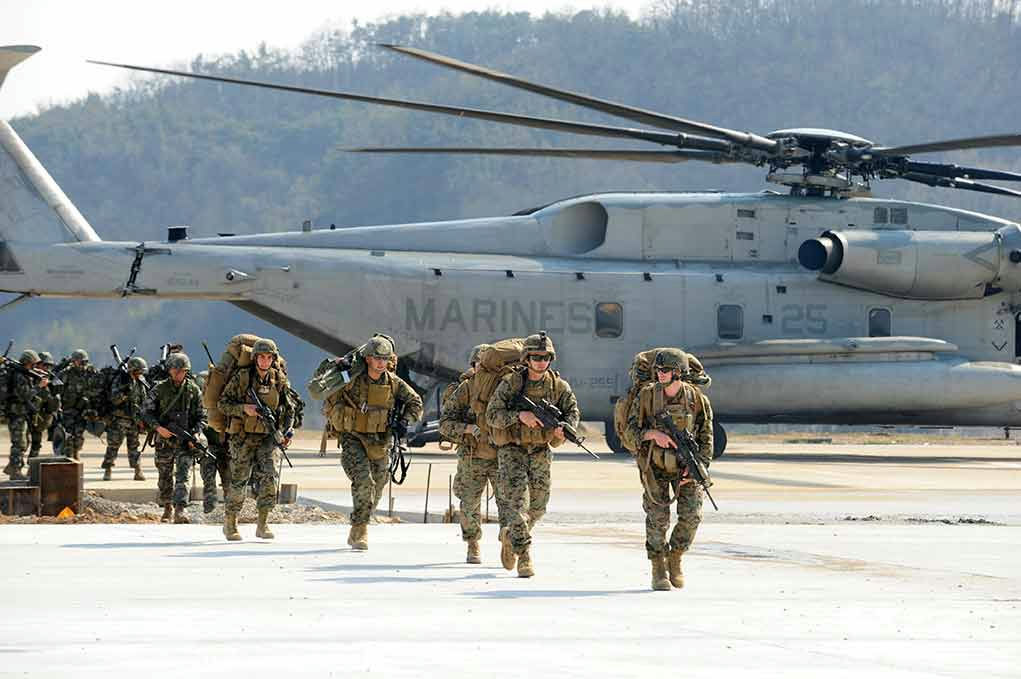Federal arming of National Guard troops in Washington, D.C. marks a turning point in the battle over local control, public safety, and the limits of presidential power.
Federal Authority Overrides Local Control in D.C.
On August 22, 2025, Defense Secretary Pete Hegseth signed an order allowing National Guard troops patrolling Washington, D.C. to carry their service-issued weapons. This dramatic move follows President Trump’s declaration of a crime emergency and direct intervention in the city’s policing, an action that bypasses D.C. Mayor Muriel Bowser and local officials. Nearly 2,000 Guard members—many from Republican-led states—are now stationed in the capital, signaling a federal assertion of control and a sharp escalation in the ongoing debate over who governs public safety in the heart of the nation.
Such use of the National Guard for domestic law enforcement remains extremely rare in American history, typically reserved for true emergencies like civil unrest or natural disasters. The last comparable deployment in D.C. occurred during the 2020 protests, when Guard troops were mobilized in response to widespread unrest. Unlike those previous situations, the current deployment is not a response to escalating violence but to political rhetoric about crime, despite city data showing a decline in crime rates. President Trump’s administration frames the move as necessary for strength and law and order, while city leaders argue it is federal overreach that undermines local governance and erodes community trust.
Escalating Tension Between Federal and Local Leadership
President Trump’s decision has fueled open conflict with D.C. Mayor Muriel Bowser, who has publicly condemned the deployment as an “armed militia” imposed without local consent. The Pentagon, overseeing the operation, has provided limited details for operational security, including whether troops will be issued live ammunition. Guard units from South Carolina, West Virginia, Ohio, Mississippi, Tennessee, and Louisiana have joined the mission, expanding federal presence in the city. This deployment sets a new precedent for the use of military force in day-to-day law enforcement, raising alarm among civil liberties advocates and law enforcement experts who warn that arming soldiers for routine patrols risks escalation and undermines the principles of community policing.
Despite the growing federal presence, there have been no reports of direct law enforcement engagement or use of force by Guard members as of the latest updates. Troops are visible at landmarks and tourist sites, with expanded patrols anticipated in the coming weeks. The Trump administration emphasizes the need for toughness in law enforcement, while critics point to declining crime statistics and accuse the White House of using the deployment for political gain. This clash reflects longstanding tensions over D.C.’s limited autonomy and the unique governance status of the capital, which remains under congressional and executive branch oversight despite the presence of local elected officials.
Implications for Constitutional Rights and Public Trust
The short-term consequence of this deployment is an unmistakable increase in military presence on the streets of Washington, D.C., with the potential for tense interactions between Guard troops and civilians. In the long term, the move sets a powerful precedent for federal intervention in local policing, threatening the autonomy that cities like D.C. have fought for decades to protect. Civil liberties advocates are alarmed by the prospect of militarizing domestic law enforcement and the chilling effect it could have on constitutional rights, including freedom of assembly and due process. Meanwhile, supporters of the administration argue that these measures are necessary to restore order and address public safety concerns, even as major news outlets and official sources report no evidence of a crime wave justifying such drastic action.
National Guard members on D.C. streets for Trump's crackdown will soon be armed, Pentagon says https://t.co/kSiWpRCmLG
— The Washington Times (@WashTimes) August 22, 2025
As the National Guard continues its armed patrols in D.C., the debate intensifies over the appropriate role of the military in civilian contexts. Law enforcement experts caution that arming troops for routine policing blurs the line between military and civil authority, potentially damaging public trust and democratic norms. Local law enforcement agencies may find their authority undermined, while D.C. residents—especially those in neighborhoods targeted for patrols—are left to navigate the reality of an increased and heavily armed federal presence. The situation remains fluid, with many questions about the scope of the Guard’s mission and the long-term consequences for American governance still unanswered.
Sources:
Defense Secretary Hegseth authorizes 2,000 National Guard troops to carry weapons in D.C. (ABC News)
Hegseth, senior DoD officials visit Guardsmen at D.C. Armory (Army.mil)
Hegseth authorizes National Guard to carry arms in Washington (Axios)

